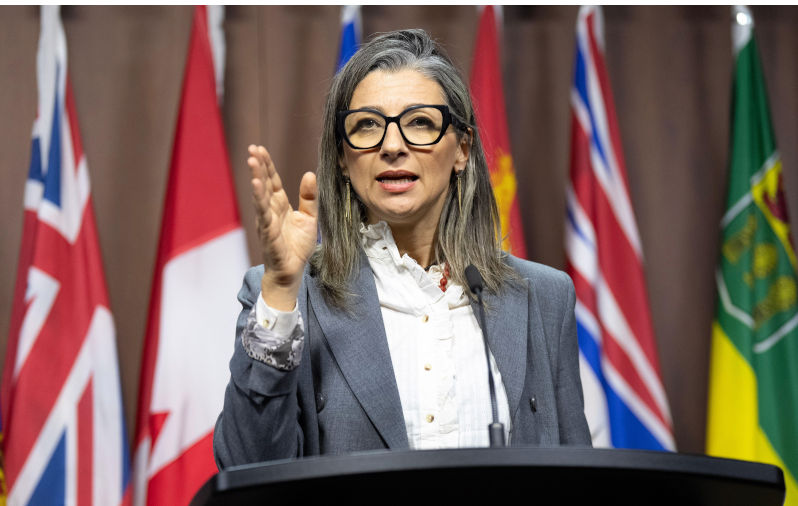Last month, Francesca Albanese, the UN Special Rapporteur, was asked: “Do you believe Israel has a right to exist?”
Her response was clear yet diplomatic. She said:
“Israel does exist… there is no such thing in international law as a right of a state to exist. What is enshrined in international law is a right of a people to exist. The state of Israel is there; it’s protected as a member of the United Nations. Does this justify the erasure of another people? Hell no. Not 75 years ago, not 57 years ago, surely not today”.
Albanese’s response highlights a critical distinction in international law: states themselves do not possess an inherent “right to exist” but peoples, such as indigenous and occupied populations, do. This reframes the issue around rights that international law recognises and protects.
Sovereign equality and state formation
Article 2 of the United Nations Charter establishes the principle of sovereign equality, affirming that all member states of the UN are legally equal, regardless of their size, power, or wealth. While this principle underpins the international system, it raises important questions about how states are formed and the extent to which foreign powers can influence the process.
Criteria for statehood
The Montevideo Convention on the Rights and Duties of States (1933) (Convention) provides a framework for determining statehood under international law. While it is not a binding treaty, its principles are often treated as customary international law. According to Article 1 of the Convention, a state must meet four key criteria:
- Permanent Population: A stable community residing in the territory.
- Defined Territory: Clear and recognised boundaries, even if minor disputes exist.
- Government: A functioning and effective administration capable of maintaining order.
- Capacity for International Relations: The ability to engage in diplomacy and fulfil international obligations.
Recognition is a vital element in the process of statehood. Under Article 6 of the Convention:
- Recognition of a state is a formal acknowledgment of its sovereignty and legal status.
- It affirms the state’s rights (e.g., territorial integrity) and obligations (e.g., treaty compliance) without necessarily approving its government or policies.
- Once granted, recognition cannot be revoked – even during disputes.
Challenges for occupied and colonised peoples
The application of these statehood criteria often disadvantages colonised and occupied peoples. Such frameworks frequently overlook local laws, customs, and governance systems, imposing external standards that serve the interests of more powerful actors. This raises the question: whose interests are being prioritised under this Convention?
Historically, indigenous and colonised populations were excluded from international politics – leaving them without representation or influence in decisions that directly affected their sovereignty. This exclusion made them vulnerable to dispossession and exploitation.
Palestine exemplifies these challenges. It could have met some of the criteria for statehood under the Convention. However, Britain, as its colonial oppressor, pursued policies that prioritised Zionist objectives at the expense of Palestinian sovereignty and rights.
Professor Julius Stone’s interpretation of international law underscores these systemic issues (Israel and Palestine: Assault on the Law of Nations, Johns Hopkins University Press, 1981). Stone relied on the colonial legal framework to support Israel’s claims, justifying the exclusion of Arab Palestinians by citing their lack of a unified political front. By focusing on what the law is rather than what it ought to be, Stone left little space to address the rights of colonised and displaced peoples.
Lessons from Mabo
The landmark 1992 decision in Mabo v Queensland (No 2) by the High Court of Australia repudiated the doctrine of terra nullius (Latin for “land belonging to no one”) which had been used to justify British colonisation. Justice Gerard Brennan stated:
“The fiction by which the rights and interests of Indigenous inhabitants in land were treated as non-existent was justified by a policy which has no place in the contemporary law of this country.”
This judgment serves as a reminder that legal systems must evolve to reject outdated doctrines that erase the rights of indigenous peoples. Applying this principle globally could challenge colonial legacies and promote justice for occupied and indigenous populations.
The formation and recognition of states remain deeply influenced by international law, yet the process often reinforces the power dynamics of colonial and imperial systems. For the Palestinians, as well as other colonised peoples, the principles of sovereign equality and self-determination remain ideals the international community must actively uphold.
Bernadette Zaydan
Bernadette Zaydan is an Australian lawyer with a diverse practice in commercial, public, and regulatory law, with about 10 years of experience. She’s particularly passionate about the intersection of law and human rights.
